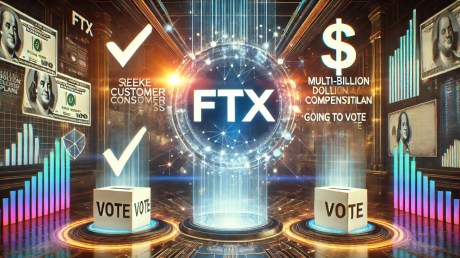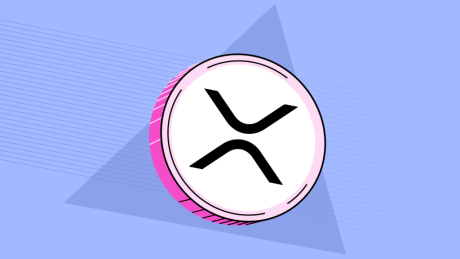FTX Seeks Customer Consensus: Multi-Billion Dollar Compensation Plan Goes To Vote
FTX, the failed crypto exchange, will seek customer approval for its Chapter 11 plan to compensate victims and resolve government penalties stemming from the platform’s fraudulent collapse in November 2022. The decision by Judge John Dorsey marks a significant step forward in the two-year-long bankruptcy proceedings, as voting by creditors plays a pivotal role in restructuring efforts. While FTX’s plan has gained support from key customer committees, a vocal group remains opposed and demands substantial revisions. FTX Offers Customers 119% Asset Recovery According to Bloomberg, under the proposed plan, most FTX customers are expected to recover 119% of their assets as of the day the company filed for Chapter 11 in November 2022. Other creditors may receive up to 143% of their owed amounts. FTX’s legal team maintains that bankruptcy law necessitates valuing claims based on their value at the time of filing, despite subsequent increases in cryptocurrency prices. Related Reading: Bitwise CIO Bullish On Spot Ethereum ETFs: Envisions $15 Billion Inflows FTX’s decision to solicit votes from its customer base stems from the desire to obtain feedback from previously uninvolved parties regarding the repayment plan. Additionally, the company is still negotiating with federal authorities and exploring options to utilize government claims against FTX to compensate affected customers. Notably, FTX has already settled a $24 billion tax claim from the US Internal Revenue Service. Under the settlement terms, the firm will pay the IRS $200 million within 60 days of implementing the proposed restructuring plan. The settlement allows FTX to pay a fraction of the amount claimed by the IRS, clearing the way for the exchange to distribute significant customer recoveries. The IRS will also receive a lower priority claim of $685 million, which will be paid on a subordinated basis to customers and other creditors, depending on the availability of funds. These details were outlined in a filing made by FTX in the US Bankruptcy Court for the District of Delaware. SBF’s Fraud Conviction Shadows Bankruptcy Proceedings FTX is currently monetizing its assets, as the platform reportedly lacked segregated digital assets directly connected to claims against the exchange. Instead, FTX possesses a collection of assets acquired using stolen customer funds, representing a complex challenge in the compensation process. Customers have until August 16 to vote on the Chapter 11 plan. Judge Dorsey will then review and potentially approve the plan on October 7, considering the outcome of the customer vote. Related Reading: Crypto Research Firm Says Bitcoin Crash Below $60,000 May Not Be The End, Here’s Why FTX filed for bankruptcy after its founder, Sam Bankman-Fried (SBF), shut down the crypto trading platform in 2022 and relinquished control to bankruptcy professionals. Bankman-Fried subsequently faced a 25-year fraud conviction, which he recently announced he would appeal. As of this writing, the exchange’s native token FTT is trading at $1.43, up 2% in the past 24 hours and just 27% year-to-date. Featured image from DALL-E, chart from TradingView.com

FTX, the failed crypto exchange, will seek customer approval for its Chapter 11 plan to compensate victims and resolve government penalties stemming from the platform’s fraudulent collapse in November 2022.
The decision by Judge John Dorsey marks a significant step forward in the two-year-long bankruptcy proceedings, as voting by creditors plays a pivotal role in restructuring efforts. While FTX’s plan has gained support from key customer committees, a vocal group remains opposed and demands substantial revisions.
FTX Offers Customers 119% Asset Recovery
According to Bloomberg, under the proposed plan, most FTX customers are expected to recover 119% of their assets as of the day the company filed for Chapter 11 in November 2022. Other creditors may receive up to 143% of their owed amounts.
FTX’s legal team maintains that bankruptcy law necessitates valuing claims based on their value at the time of filing, despite subsequent increases in cryptocurrency prices.
FTX’s decision to solicit votes from its customer base stems from the desire to obtain feedback from previously uninvolved parties regarding the repayment plan.
Additionally, the company is still negotiating with federal authorities and exploring options to utilize government claims against FTX to compensate affected customers.
Notably, FTX has already settled a $24 billion tax claim from the US Internal Revenue Service. Under the settlement terms, the firm will pay the IRS $200 million within 60 days of implementing the proposed restructuring plan.
The settlement allows FTX to pay a fraction of the amount claimed by the IRS, clearing the way for the exchange to distribute significant customer recoveries.
The IRS will also receive a lower priority claim of $685 million, which will be paid on a subordinated basis to customers and other creditors, depending on the availability of funds. These details were outlined in a filing made by FTX in the US Bankruptcy Court for the District of Delaware.
SBF’s Fraud Conviction Shadows Bankruptcy Proceedings
FTX is currently monetizing its assets, as the platform reportedly lacked segregated digital assets directly connected to claims against the exchange. Instead, FTX possesses a collection of assets acquired using stolen customer funds, representing a complex challenge in the compensation process.
Customers have until August 16 to vote on the Chapter 11 plan. Judge Dorsey will then review and potentially approve the plan on October 7, considering the outcome of the customer vote.
FTX filed for bankruptcy after its founder, Sam Bankman-Fried (SBF), shut down the crypto trading platform in 2022 and relinquished control to bankruptcy professionals. Bankman-Fried subsequently faced a 25-year fraud conviction, which he recently announced he would appeal.
As of this writing, the exchange’s native token FTT is trading at $1.43, up 2% in the past 24 hours and just 27% year-to-date.
Featured image from DALL-E, chart from TradingView.com
What's Your Reaction?




















